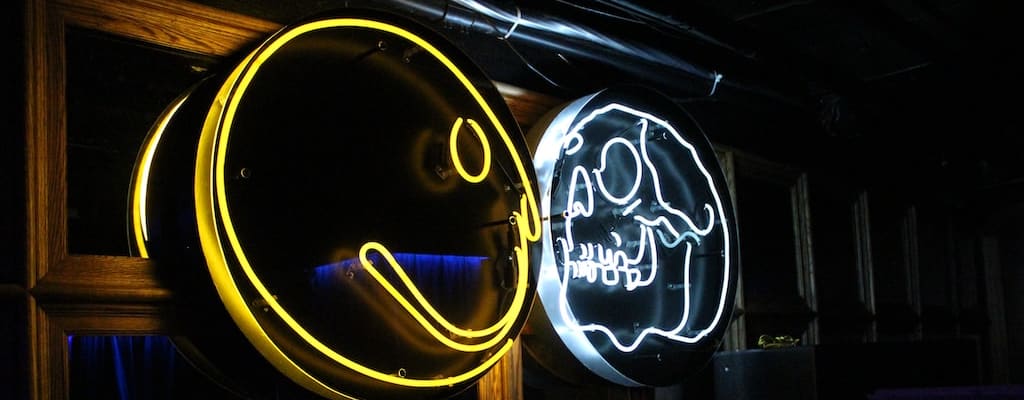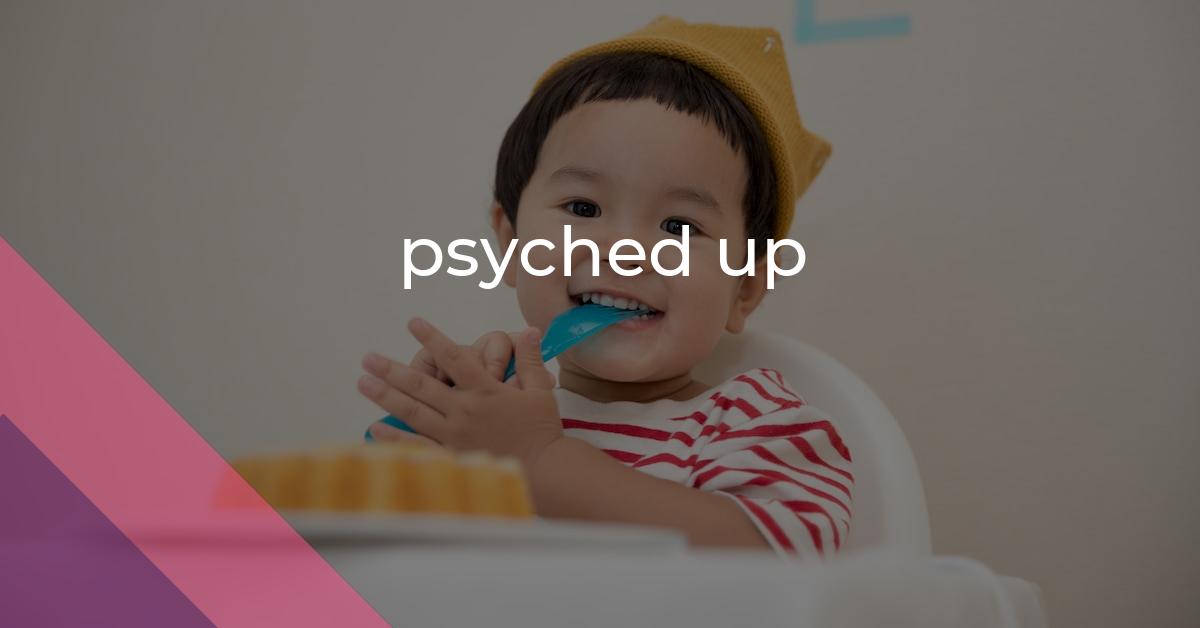psyched up: Idiom Meaning and Origin
What does ‘psyched up’ mean?
The idiom "psyched up" means to be mentally prepared, excited, or motivated for a particular event or challenge.

Idiom Explorer
The idiom "worked up" means to be in a state of agitation, anxiety, or excitement. It often implies that someone is overly emotional or upset about something, sometimes to the point of becoming irrational or exaggerated in their reactions.
The idiom *put one's mind to it* means to concentrate or focus one's thoughts and efforts on a particular task or goal.
The idiom "pull oneself together" means to regain control of one's emotions or behavior after being upset, distracted, or disorganized. It implies the need to gather one's thoughts or compose oneself in order to handle a difficult or challenging situation.
The idiom "play up" means to emphasize or highlight something, often in order to gain attention or elicit a certain reaction. It can also refer to exaggerating or overplaying a situation or a person's abilities.
The idiom "p'd off" means feeling extremely angry or annoyed. It is an informal expression used to describe a strong negative emotional state in reaction to a specific event or situation.
The idiom "over the moon" means to be extremely happy or delighted about something, often to the point of feeling euphoric or elated.
The idiom "out of one's mind" means to be mentally deranged or insane.
An idiom meaning to feel extremely happy and successful.
The idiom "on the warpath" means to be angry, aggressive or ready to start a fight or confrontation.
The idiom "on the edge of one's seat" means to be in a state of excitement, anticipation, or suspense, eagerly waiting for something to happen.
Harnessing Inner Energy
A popular idiom in American English, "psyched up" describes a state of excitement, anticipation, or eagerness. The term "psych" comes from "psychology," the study of the human mind and behavior.
The idiom is commonly associated with sports and performance. It refers to the mental and emotional preparation athletes undergo before a competition or performers experience before going on stage.
Its origins are uncertain, but it gained popularity in the 1960s and 1970s, influenced by the counterculture movement that promoted individual expression and unconventional thinking.
"Psyched up" conveys enthusiasm, energy, motivation, and a heightened state of focus. It describes the buildup before an important event, such as a job interview or public speaking engagement.
The idiom can be used in various contexts, both internal and external. For example, someone can be "psyched up" about an upcoming vacation, expressing excitement and readiness. A coach can "psych up" their team with an inspiring speech to ensure optimal performance.
Overall, "psyched up" encompasses a range of emotions and mental states. It signifies anticipation, enthusiasm, and emotional preparation for an event or challenge.
Another idiom related to "psyched up" is "worked up." This expression describes a state of agitation, worry, or excitement. It implies a heightened emotional state, often due to anticipation, nervousness, or stress. While "worked up" and "psyched up" both describe heightened emotional states, "psyched up" suggests a positive and motivated outlook, while "worked up" leans towards a more negative or anxious mindset.
For instance, someone might be "worked up" before a job interview, feeling anxious and worried about the outcome. However, after preparing and psyching themselves up, they can enter the interview with confidence and excitement.
Another related idiom is "out of one's mind." This expression means to be extremely excited, agitated, or preoccupied with something. It suggests a state of being consumed by thoughts or emotions, often to the point of distraction.
When someone is "out of their mind" and "psyched up," it usually means they have an intense focus and excitement about a particular event or challenge. Their thoughts and emotions are fully engaged, driving their motivation and energy.
"on the edge of one's seat" is another idiom that relates to being "psyched up." This expression conveys a state of heightened anticipation, suspense, or excitement. It implies a sense of being fully engaged and eagerly awaiting an outcome or event.
When someone is "on the edge of their seat" and "psyched up," it means they are eagerly anticipating and mentally preparing for something exciting or significant. They are fully invested in the outcome and ready to take action.
Another related idiom is a "nervous hit." This expression describes a sudden intense surge of nervousness or anxiety. It suggests a powerful emotional response to a particular situation or event that may cause discomfort or unease.
When someone is experiencing a "nervous hit" while being "psyched up," it means they are simultaneously feeling a surge of excitement and anticipation, as well as a tingling sense of nerves and anxiety. This combination of emotions can create a particularly charged mental and emotional state.
Finally, there is the idiom "put one's mind to it." This expression means to dedicate one's full mental focus, effort, and attention to achieving a particular goal or completing a task.
When someone is "putting their mind to it" and "psyched up," they are not only mentally prepared and focused, but they are also motivated and determined to succeed. The combination of mental readiness and emotional drive can greatly enhance their chances of achieving their desired outcome.
"psyched up" is a versatile idiom that encompasses a range of emotions and mental states associated with excitement, anticipation, and emotional preparation. It is related to idioms such as "worked up," "out of one's mind," "on the edge of one's seat," "nervous hit," and "put one's mind to it," each describing different aspects of heightened psychological states and experiences. These idioms capture the multifaceted nature of human emotions and the complexity of our mental and emotional responses to events and challenges.
Example usage
Examples of how the idiom *psyched up* can be used in a sentence:
- She was psyched up for her job interview, and it showed in her confident demeanor.
- The team huddled together, getting psyched up for the championship game.
- He listened to his favorite pump-up song to get psyched up before his workout.
More "Motivation" idioms



